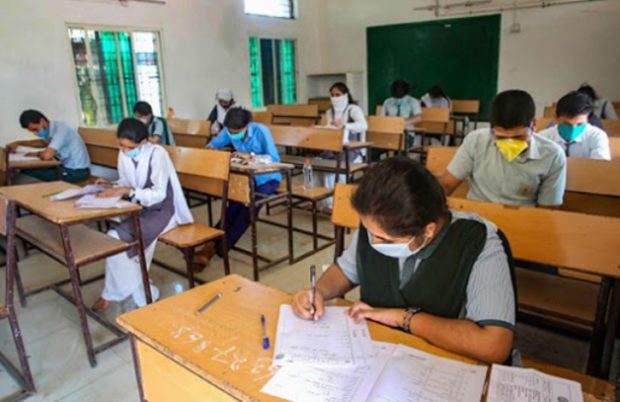Bangalore: The state government has made a significant change in the PUC, henceforth there will be internal marks for all subjects in PU, not just science. Till now there were internal marks only for science subjects that had practical exam. Henceforth it will be extended to all subjects. While the Education Department has issued a circular, Education Minister Madhu Bangarappa gave more details about it in a media conference on Tuesday.
What is the internal score?
The new rule will be applicable for first and second PUC classes. PUC Board is awarding 30 marks for practical exam for science subjects. It will continue like this. 20 internal marks are now fixed for all subjects without practical tests
In science subjects 70 marks will be given as theory test and 30 marks as practical test based internal marks. In other subjects except science, the examination was conducted for 100 marks earlier. Now there will be exam for 80 marks only. The remaining 20 marks are set as internal marks. . The circular has also given a clear explanation about how it should be given and what are the criteria.
Why internal score: What does the government say?
- Internal assessment is part of comprehensive assessment.
- It helps to realize the potential of the students.
- Increases seriousness about short exam and mid-year exams.
- Internal assessment reduces exam stress.
- By increasing the students’ motivation, the professional skills found in them will encourage them for further education.
- Student observation, which is continuous, allows learning to improve.
- To allow uniform examination system for all subjects and students.
How to give 20 internal marks?
How to decide internal marks in subjects without practical test?
- 10 Marks: The best two of the marks obtained in the first short examination, second short examination and mid-year examinations are converted into 10 marks and their average marks are given.
- 10 Marks: Project and Assignment Marks at College Level: Writing Section for Project and Assignments – 5 Marks, Presentation – 3 Marks, Interview (Viva Voce) – 2 Marks.
How about a short exam, mid-year exam?
- Physics, Chemistry, Biology, Electronics, Computer Science, Home Science, Carnatic Music and Hindustani Music and NSQF subjects like IT, Automobile, Retail, Beauty & wellness will not have internal assessment. In all these matters status quo will continue and there will be no difference.
- In all other language and code subjects 20 marks are allotted for internal evaluation.
- Conducting the currently followed short examinations for 40 marks and mid-year examination for 30 marks.
- Students should consider minimum 24 marks to pass the 80 marks annual examination question paper.
- If the student is absent in any one of the first and second short examination and the mid-year examination, the marks obtained in the remaining two examinations shall be converted into 10 marks and averaged.
- If a student has appeared in only one short examination or mid-year examination then those marks shall be converted into ten and half marks shall be awarded.
- If a student does not appear for any short examination or mid-year examination and does not submit any projects and assignments, he will have to secure 35 marks out of 80 marks required to pass the annual examination.
- Assign appropriate assignments or projects to students and evaluate them for 10 marks. Scrutinize the assignments or projects and award marks without any bias and keep the records for a period of four months after the examination (on the pattern of keeping answer papers).
- Giving assignments to each student individually.
- To prepare a list of project or assignment titles in the subject wise lecturer forum and give the list to the students and follow those titles in all the colleges of the district.
- Principals of colleges should supervise the internal evaluation process, awarding of marks and recording of marks without allowing any confusion.
- The marks of short tests, projects and assignments will be updated on the portal within two days after evaluation, no delay is allowed.
- Starting the system of awarding internal assessment marks for first and second PUC classes from the year 2023-2024.
- This system is not applicable to the students of the previous year i.e. repeated students and students taking the second PU examination after registering as a private candidate, except for the students (Regular) in the year 2023-24. That means those students have to answer the question paper of 100 marks.
- In the event that a student changes colleges due to unavoidable reasons, the subject of private study will also be subjected to internal evaluation system (20:80). Principals of the said colleges to make suitable arrangements for evaluation.
- Scores must be recorded within the stipulated time as the 20 marks awarded by Internal Assessment are considered by SATS directly for publication of results. Otherwise, the principal of the concerned college will be made directly responsible.
- Action taken by the Karnataka Board of School Examination and Evaluation to prepare a guide manual on internal assessment methods, blue road to 30 marks and model question papers..




